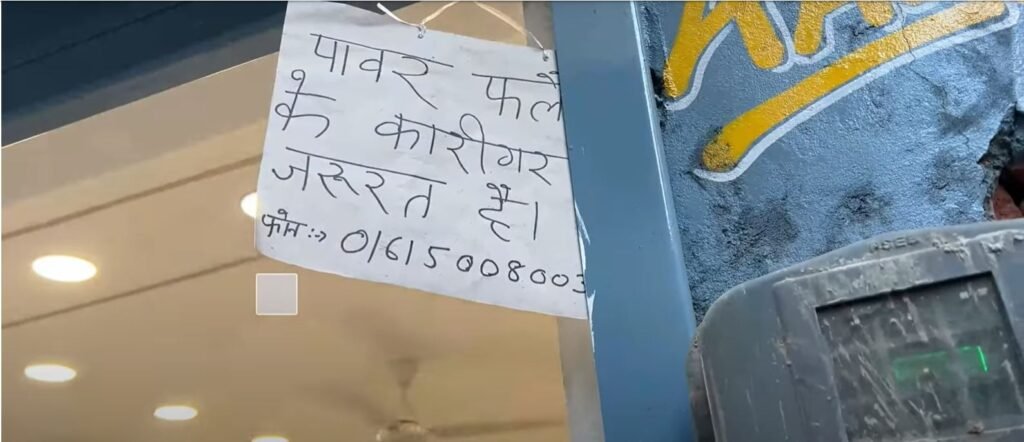The sector, which employs thousands of Muslim workers and generates ₹14,000 crore annually, faces a grave crisis as workers flee fearing for their safety, leaving businesses on the brink of collapse
NEW DELHI/LUDHIANA – The bustling hosiery industry of Ludhiana in Punjab, known as the heart of India’s woollen clothing production, is reeling from the impact of recent tensions between India and Pakistan.
More than 12,000 units in this city produce over 80 per cent of the warm clothes sold across India, contributing approximately ₹14,000 crore annually. Yet the industry is now on the verge of collapse, largely because Muslim workers, the backbone of this trade, have fled the area, fearing for their safety.
The tragic terrorist attack in Pahalgam on 22 April 2025 set off a chain of events that have since paralysed Ludhiana’s factories. “After the attack, war-like conditions began between India and Pakistan. It’s as if a storm has hit our city,” said Mohammad Anwar, a hosiery factory owner and a respected member of the local Muslim business community. “Our workers, most of whom are Muslim and come from various parts of northern India, left their jobs to return home. Many have not come back yet because of the fear and uncertainty.”
The hosiery cluster of Ludhiana specialises in jackets, sweaters, thermals, cardigans, pullovers, inners and shawls. These warm clothes are essential for northern India’s harsh winters, especially from October to December, which are considered peak months for the sector. Work typically begins in March and April to prepare stock for the winter season. However, this year the production cycle has been severely disrupted.
“As soon as the news of the attack came, our factory gates shut. We had no choice but to send the workers home,” said Anwar. “This industry thrives on continuous labour. Without our workers, production simply stops.”
The conflict has not only halted production but also created widespread fear among the Muslim workforce. Many workers belong to families that have deep roots in the region but feel vulnerable amid rising tensions and communal fears. “My brothers and sisters have not returned to Ludhiana since April,” explained Shabana Begum, who manages a small hosiery unit employing 15 workers. “Some have gone back to Uttar Pradesh and Bihar for safety, and others are waiting until things calm down. But every day that passes without work is a heavy loss for their families.”
Shopkeepers in Ludhiana’s hosiery markets confirm that business is down sharply. “Almost 95 per cent of shops are closed. Those of us who remain open sell only a fraction of our usual stock,” said Faiz Ahmed, a shop owner and community leader. “This is a big setback for our people. The livelihoods of thousands depend on this trade.”

The economic damage is clear. “Last year at this time, we would be running full steam, preparing winter stock. Now, our production has dropped by nearly 70 per cent,” said Anwar. “The orders we used to receive from Punjab, Haryana, Delhi, Himachal Pradesh, Jammu and Kashmir, and even Bihar have dried up. The entire supply chain is broken.”
Ludhiana’s hosiery cluster has long been a source of pride and prosperity for the local Muslim community, providing employment and sustenance to many families. Yet now, the situation threatens to unravel that hard-won stability. “This industry was built on the hard work and dedication of Muslim artisans and labourers,” explained Dr Saif Qureshi, a local economist. “When the workers leave, the entire economic fabric suffers. It’s a tragedy not only for business but for the community that depends on it.”
The industry’s future remains uncertain. “If the situation does not improve soon, many businesses will be forced to shut down permanently,” warned Anwar. “We urgently need peace and security for our workers to return and rebuild.”
Despite the challenges, the Muslim community in Ludhiana remains hopeful and resilient. “We have faced difficulties before,” said Faiz Ahmed, “but we believe that with unity and support, we will recover. Our people are strong, and this too shall pass.”
Meanwhile, government officials and community leaders are being urged to intervene and provide support to the workers and businesses suffering the consequences of this conflict. “The workers must be assured of their safety, and help must be provided to restart production,” said Dr Qureshi. “Without this, the damage to Ludhiana’s economy and its Muslim community could be irreversible.”

In a time of fear and uncertainty, the people of Ludhiana’s hosiery industry await a return to normalcy — one that will allow them to resume their important work and rebuild the livelihoods that sustain thousands of families across India.

